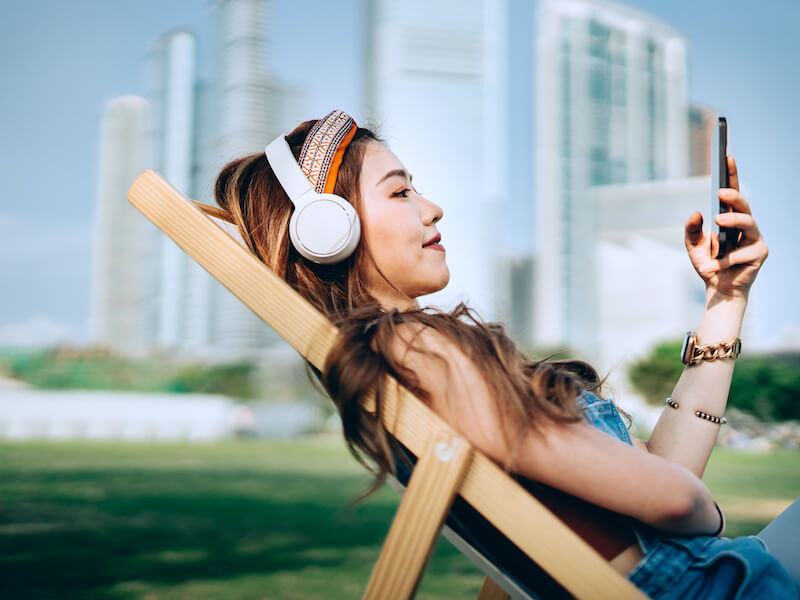
Music is an essential part of Aiden’s life. While he’s out running, he’s listening to Pandora, while working it’s Spotify, and he has a playlist for everything he does: cardio, cooking, video games, you name it. His entire life has a soundtrack and it’s playing on his headphones. But the very thing that Aiden enjoys, the loud, immersive music, could be causing irreversible damage to his hearing.
There are ways to listen to music that are healthy for your ears and ways that are not so safe. But the more hazardous listening choice is usually the one most of us choose.
How can hearing loss be caused by listening to music?
Your ability to hear can be compromised over time by exposure to loud noise. We’re used to thinking of hearing loss as a problem associated with aging, but more and more research reveals that it’s actually the accumulation of noise-related damage that is the issue here and not anything intrinsic to the process of aging.
It also turns out that younger ears are particularly vulnerable to noise-related damage (they’re still growing, after all). And yet, the long-term harm from high volume is more likely to be ignored by younger adults. So because of widespread high volume headphone use, there has become an epidemic of hearing loss in young people.
Can you listen to music safely?
Unlimited max volume is clearly the “hazardous” way to enjoy music. But merely turning the volume down is a less dangerous way to listen. The general recommendations for safe volumes are:
- For adults: Keep the volume at no more than 80dB and for no more than 40 hours a week..
- For teens and young children: 40 hours is still okay but decrease the volume to 75dB.
About five hours and forty minutes a day will give you about forty hours every week. That seems like a lot, but it can go by rather rapidly. Even still, most individuals have a fairly sound concept of keeping track of time, it’s something we’re trained to do efficiently from a very young age.
The more challenging part is monitoring your volume. Volume isn’t gauged in decibels on most smart devices like TVs, computers, and smartphones. Each device has its own arbitrary scale. It might be 1-100. Or it may be 1-10. You might not have a clue how close to max volume you are or even what max volume on your device is.
How can you track the volume of your tunes?
It’s not very easy to tell how loud 80 decibels is, but thankfully there are some non-intrusive ways to tell how loud the volume is. It’s even more difficult to determine the difference between 80 and 75dB.
That’s why it’s highly suggested you utilize one of many cost-free noise monitoring apps. These apps, generally available for both iPhone and Android devices, will provide you with8 real-time readouts on the noises around you. In this way, you can make real-time alterations while monitoring your actual dB level. Or, when listening to music, you can also modify your configurations in your smartphone which will efficiently tell you that your volume is too loud.
As loud as a garbage disposal
Your garbage disposal or dishwasher is typically about 80 decibels. That’s not too loud. It’s a relevant observation because 80dB is about as much noise as your ears can handle without damage.
So pay close attention and try to stay away from noise above this volume. And minimize your exposure if you do listen to music over 80dB. Maybe minimize loud listening to a song instead of an album.
Listening to music at a loud volume can and will cause you to have hearing problems over the long run. You can develop hearing loss and tinnitus. Your decision making will be more informed the more mindful you are of when you’re entering the danger zone. And ideally, those decisions lean towards safer listening.
Call us if you still have questions about keeping your ears safe.
